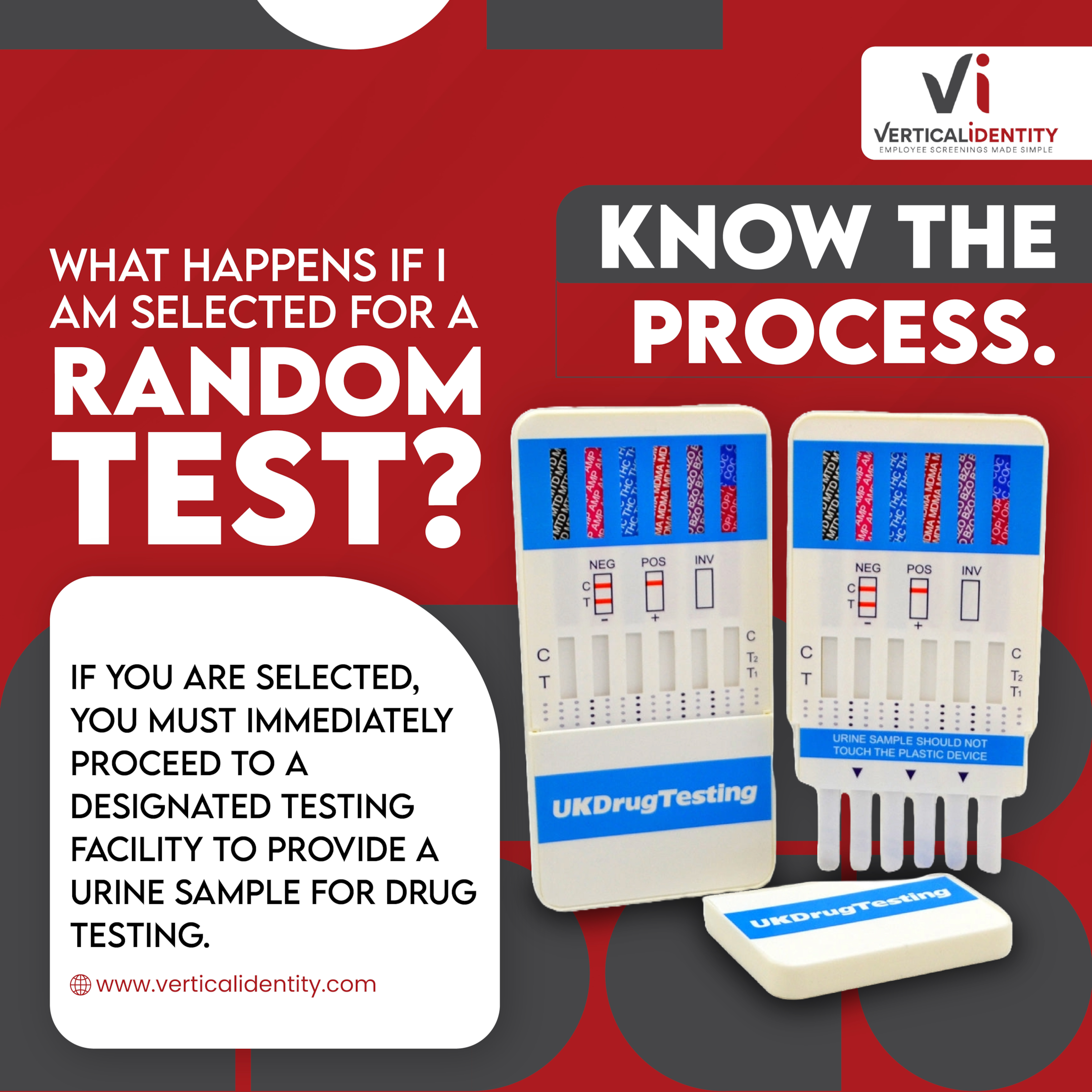Random drug testing is a practice that is becoming increasingly common in various industries and organizations. It is a method used to deter and detect substance abuse among employees or individuals in certain settings. Random drug testing aims to ensure a safe and drug-free environment for everyone involved. This article will discuss what happens if you are selected for a random test, the legal requirements surrounding random drug testing, the testing process, common types of random drug tests, the consequences of failing a random drug test, and how to prepare for one.
How are individuals selected for random tests?
The selection process for random drug tests varies depending on the organization or industry. In most cases, a random selection is made from a pool of employees or individuals who are subject to testing. This selection is typically done using a computer-generated program that ensures fairness and impartiality. The individuals chosen for testing are usually notified in advance and given instructions on when and where to report for the test.
Legal requirements for random drug testing
Random drug testing is subject to certain legal requirements to protect the rights of individuals. The specific laws and regulations governing random drug testing vary by jurisdiction and industry. It is essential for organizations to comply with these requirements to ensure the validity and legitimacy of the testing process.
Some of the common legal requirements include obtaining informed consent from individuals, maintaining confidentiality of test results, and allowing individuals to challenge the results if necessary.
What happens if you are selected for a random test?

If you are selected for a random drug test, it is crucial to understand the process and what to expect. Upon receiving a notification, you will be provided with information regarding the test’s date, time, and location. It is essential to comply with these instructions and report for testing at the designated time. Failure to do so may result in disciplinary action.
The testing process
The testing process for a random drug test typically involves several steps. First, you will need to provide a urine sample, which will be collected in a sterile container. The sample will then be sealed and sent to a laboratory for analysis. Additional testing methods, such as blood or hair follicle tests, may sometimes be required. The laboratory will analyze the sample for drugs or their metabolites, and the results will be reported to the organization that initiated the test.
Common types of random drug tests
Several types of drug tests may be conducted as part of a random testing program. The most common type is a urine test, which is non-invasive and relatively inexpensive. Different forms of testing include blood tests, which are both more invasive and costly, and hair follicle tests, capable of identifying drug use over an extended period. The choice of test is contingent upon factors such as the organization’s policies, the specific drugs targeted for detection, and the allocated budget for testing.
What happens if you fail a random drug test?
Failing a random drug test can have serious consequences, both professionally and personally. The exact consequences will depend on the organization’s policies, industry regulations, and local laws. Failing a drug test often leads to disciplinary consequences, such as termination of employment or implementing corrective measures. It can also hurt your reputation and future employment prospects. It is essential to be aware of the potential consequences and make informed decisions regarding drug use.
Consequences of a failed random drug test
Failing a random drug test can have serious consequences. In addition to potential job loss, you may face legal consequences if drug use is illegal in your jurisdiction. Failing a drug test can also have personal and financial implications, as it can strain relationships and limit future employment opportunities. It is crucial to prioritize your well-being and make responsible choices to avoid the potential consequences of failing a random drug test.
How to prepare for a random drug test
While random drug tests are designed to catch individuals off guard, there are steps you can take to prepare yourself. First and foremost, the best way to pass a random drug test is to abstain from using drugs altogether. Suppose you have used drugs in the past and are concerned about the possibility of a positive test result. In that case, it is important to seek professional help and support to overcome any substance abuse issues. Additionally, staying hydrated, maintaining a healthy lifestyle, and being aware of any medications or supplements you are taking can also help you prepare for a random drug test.
Conclusion
In conclusion, if you are selected for a random test, you must comply with the testing process and be aware of the potential consequences of failing. By prioritizing your well-being and making responsible choices, you can navigate the challenges of random drug testing and maintain a drug-free lifestyle. Refrain from using drugs entirely to increase your chances of successfully passing a random drug test. Take control of your future by making informed decisions and seeking support if needed.
If you find yourself selected for a random drug test, it’s crucial to comply with the process, understand legal requirements, and be aware of potential consequences. Prioritize a drug-free lifestyle, seek professional help if needed, and make informed decisions to safeguard your well-being. Visit Vertical Identity for support.
